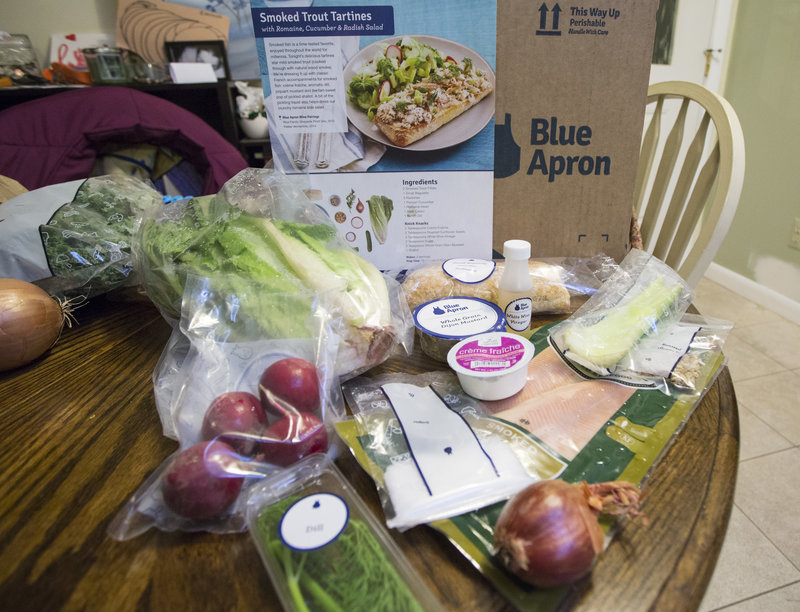
While it may seem that heaps of plastic from meal kit delivery services like Blue Apron make them less environmentally friendly than traditional grocery shopping, a new study says the kits actually produce less food waste. Derek Davis/Portland Press Herald via Getty Images
Meal Kits Have A Smaller Carbon Footprint Than Grocery Shopping, Study Says
Via NPR
The study is weak on enough fronts that the headline is misleading. I don’t like this article.
First, the NPR sponsor tie-in is a factor. Sorry. It just is.
Secondly, the article author, and one particular researcher, gloss over any meaningful consumer behavior towards freezing. They simply dismiss it as a non factor due to the inevitability of discarded freezer burnt frozen food.
Wrong. That is only true if people don’t ever eat it. If you actually wrap food well, and actually thaw it properly, and actually eat it in the not too distant future, freezing is perfectly fine, and an excellent way to manage eating/cooking/conservation habits.
If people don’t know how to freeze food properly, that’s an education problem that can be overcome with more guidance. Freezer burn and food waste is a weak, unsubstantiated reason to justify and “sell” the meal kit concept. Especially if it’s put forth by vested interests in the business of selling it, or, by funded researchers.
Not to mention, .the excessive cost of figuring pre-made meal kits into your budget. Not to mention the industrial energy used in mass production lines to being said meal kits to you by mail, delivery, or pick up somewhere.
Carbon Footprints and energy usage contributing to global warming, or just the study of overall energy usage is a work intensive and complicated matter to calculate fairly, That is why there is often only partial studies done with disclaimers all over the place, that represent a vested interest somewhere along the line.
At least NPR mentions the sponsorship connection in the article. I should’ve stopped reading right there.
